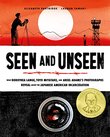
by Amor Towles ‧ RELEASE DATE: Sept. 6, 2016
A masterly encapsulation of modern Russian history, this book more than fulfills the promise of Towles' stylish debut, Rules...
Awards & Accolades
Likes

29
Our Verdict

GET IT
Kirkus Reviews'
Best Books Of 2016
Kirkus Prize
finalist
New York Times Bestseller
Sentenced to house arrest in Moscow's Metropol Hotel by a Bolshevik tribunal for writing a poem deemed to encourage revolt, Count Alexander Rostov nonetheless lives the fullest of lives, discovering the depths of his humanity.
Inside the elegant Metropol, located near the Kremlin and the Bolshoi, the Count slowly adjusts to circumstances as a "Former Person." He makes do with the attic room, to which he is banished after residing for years in a posh third-floor suite. A man of refined taste in wine, food, and literature, he strives to maintain a daily routine, exploring the nooks and crannies of the hotel, bonding with staff, accepting the advances of attractive women, and forming what proves to be a deeply meaningful relationship with a spirited young girl, Nina. "We are bound to find comfort from the notion that it takes generations for a way of life to fade," says the companionable narrator. For the Count, that way of life ultimately becomes less about aristocratic airs and privilege than generosity and devotion. Spread across four decades, this is in all ways a great novel, a nonstop pleasure brimming with charm, personal wisdom, and philosophic insight. Though Stalin and Khrushchev make their presences felt, Towles largely treats politics as a dark, distant shadow. The chill of the political events occurring outside the Metropol is certainly felt, but for the Count and his friends, the passage of time is "like the turn of a kaleidoscope." Not for nothing is Casablanca his favorite film. This is a book in which the cruelties of the age can't begin to erase the glories of real human connection and the memories it leaves behind.
A masterly encapsulation of modern Russian history, this book more than fulfills the promise of Towles' stylish debut, Rules of Civility(2011).Pub Date: Sept. 6, 2016
ISBN: 978-0-670-02619-7
Page Count: 480
Publisher: Viking
Review Posted Online: June 20, 2016
Kirkus Reviews Issue: July 1, 2016
Share your opinion of this book
More by Amor Towles
BOOK REVIEW
by Amor Towles
BOOK REVIEW
edited by Amor Towles ; series editor: Otto Penzler
BOOK REVIEW
by Amor Towles
More About This Book
SEEN & HEARD
SEEN & HEARD
SEEN & HEARD

by Kristin Hannah ‧ RELEASE DATE: Feb. 3, 2015
Still, a respectful and absorbing page-turner.
Hannah’s new novel is an homage to the extraordinary courage and endurance of Frenchwomen during World War II.
In 1995, an elderly unnamed widow is moving into an Oregon nursing home on the urging of her controlling son, Julien, a surgeon. This trajectory is interrupted when she receives an invitation to return to France to attend a ceremony honoring passeurs: people who aided the escape of others during the war. Cut to spring, 1940: Viann has said goodbye to husband Antoine, who's off to hold the Maginot line against invading Germans. She returns to tending her small farm, Le Jardin, in the Loire Valley, teaching at the local school and coping with daughter Sophie’s adolescent rebellion. Soon, that world is upended: The Germans march into Paris and refugees flee south, overrunning Viann’s land. Her long-estranged younger sister, Isabelle, who has been kicked out of multiple convent schools, is sent to Le Jardin by Julien, their father in Paris, a drunken, decidedly unpaternal Great War veteran. As the depredations increase in the occupied zone—food rationing, systematic looting, and the billeting of a German officer, Capt. Beck, at Le Jardin—Isabelle’s outspokenness is a liability. She joins the Resistance, volunteering for dangerous duty: shepherding downed Allied airmen across the Pyrenees to Spain. Code-named the Nightingale, Isabelle will rescue many before she's captured. Meanwhile, Viann’s journey from passive to active resistance is less dramatic but no less wrenching. Hannah vividly demonstrates how the Nazis, through starvation, intimidation and barbarity both casual and calculated, demoralized the French, engineering a community collapse that enabled the deportations and deaths of more than 70,000 Jews. Hannah’s proven storytelling skills are ideally suited to depicting such cataclysmic events, but her tendency to sentimentalize undermines the gravitas of this tale.
Still, a respectful and absorbing page-turner.Pub Date: Feb. 3, 2015
ISBN: 978-0-312-57722-3
Page Count: 448
Publisher: St. Martin's
Review Posted Online: Nov. 19, 2014
Kirkus Reviews Issue: Dec. 1, 2014
Share your opinion of this book
More About This Book
BOOK TO SCREEN
SEEN & HEARD

by Genki Kawamura ; translated by Eric Selland ‧ RELEASE DATE: March 12, 2019
Jonathan Livingston Kitty, it’s not.
A lonely postman learns that he’s about to die—and reflects on life as he bargains with a Hawaiian-shirt–wearing devil.
The 30-year-old first-person narrator in filmmaker/novelist Kawamura’s slim novel is, by his own admission, “boring…a monotone guy,” so unimaginative that, when he learns he has a brain tumor, the bucket list he writes down is dull enough that “even the cat looked disgusted with me.” Luckily—or maybe not—a friendly devil, dubbed Aloha, pops onto the scene, and he’s willing to make a deal: an extra day of life in exchange for being allowed to remove something pleasant from the world. The first thing excised is phones, which goes well enough. (The narrator is pleasantly surprised to find that “people seemed to have no problem finding something to fill up their free time.”) But deals with the devil do have a way of getting complicated. This leads to shallow musings (“Sometimes, when you rewatch a film after not having seen it for a long time, it makes a totally different impression on you than it did the first time you saw it. Of course, the movie hasn’t changed; it’s you who’s changed") written in prose so awkward, it’s possibly satire (“Tears dripped down onto the letter like warm, salty drops of rain”). Even the postman’s beloved cat, who gains the power of speech, ends up being prim and annoying. The narrator ponders feelings about a lost love, his late mother, and his estranged father in a way that some readers might find moving at times. But for many, whatever made this book a bestseller in Japan is going to be lost in translation.
Jonathan Livingston Kitty, it’s not.Pub Date: March 12, 2019
ISBN: 978-1-250-29405-0
Page Count: 176
Publisher: Flatiron Books
Review Posted Online: Feb. 16, 2019
Kirkus Reviews Issue: March 1, 2019
Share your opinion of this book
© Copyright 2025 Kirkus Media LLC. All Rights Reserved.
Hey there, book lover.
We’re glad you found a book that interests you!
We can’t wait for you to join Kirkus!
It’s free and takes less than 10 seconds!
Already have an account? Log in.
OR
Trouble signing in? Retrieve credentials.
Welcome Back!
OR
Trouble signing in? Retrieve credentials.
Don’t fret. We’ll find you.





